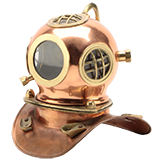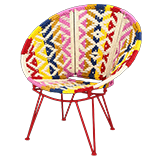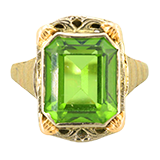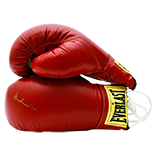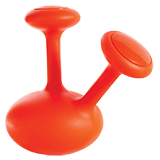Friedel Dzubas Screen Print "Museum of Fine Arts, Boston: Celebration 81"
Item Details
Friedel Dzubas (American, 1915-1994)
Museum of Fine Arts, Boston: Celebration 81
screen print poster on paper
inscribed; For Lucy Moffett in friendship from Friedel, Dec 83
unmounted and unframed
28′ × 60′
Provenance
The Lucy Baker and Kenworth Moffett Collection of New New Group Painters
A screen print poster on paper by abstract expressionist Friedel Dzubas, executed in 1981. The poster depicts a five planes of vibrant color in celebration for the Museum of Fine Arts in Boston. Dzubas became acquainted with Ken and Lucy in the 80s and continued friendship over the years interacting at such events as the Emma Lake workshops. This poster was gifted to Lucy from Dzubas in 1983.
Friedel Dzubas was born in Berlin during 1915 and received his formal artistic training from the Prussian Academy of Fine Art from 1936-1939 under the guidance of artist Paul Klee (1879-1940). Dzubas is known for creating works with an oil based acrylic paint known as Magna as well as applying pigment by staining and scrubbing paint onto canvas. Known for creating extremely large works, he is credited with creating possibly the largest abstract painting in the world titled Crossings and measures 59 feet. His work was heavily critiqued and promoted by renowned Modern art critic Clement Greenberg (1909-1994), along with other mid-century Modernists including Anthony Caro (1924-2013), Helen Frankenthaler (1928-2011), and Jackson Pollock (1912-1956) among others.
In 1948 Dzubas answered an anonymous advertisement for a summer roommate in New York, which was revealed to be with art critic Clement Greenberg. Through Greenberg, Dzubas became good friends with Jackson Pollock and associated with Jules Olitski and Kenneth Noland. During the 1950s he shared a studio with Abstract painter Helen Frankenthaler in New York. It was during the 1960s that he became affiliated with Color Field painting and Lyrical Abstraction. In 1965, Dzubas switched from oil paint to Magna acrylics, in which he could still achieve the luminosity of oil paint. By the 1980s, he started to abandon preliminary preparations such as sketching and priming the canvas. Instead, he would apply a very thin layer of gesso primer to ensure the pigment would absorb into the ground material immediately. Dzubas stated “I like that risk, I think, to a certain degree, I have to make it mechanically difficult and unreliable for myself. If I can predict the effect too much, then I probably am not supposed to be doing it. I function better if my footing is not too sure, so to speak.’
During the later decades of his career, Dzubas had over sixty solo exhibition throughout the world. He was represented by Knoedler Contemporary Arts in New York for over thirty years and exhibited in Anita Shapolsky Gallery in New York specializing in abstract expressionist art from the 1950s and 1960s. He settled in Massachusetts in 1976 but continued to paint and work in New York City. His artwork began to depict large blocks of color nested against one another appearing to float.
Throughout his career, Dzubas taught at several institutions, including the School of the Museum of Fine Arts, Boston; Cornell University as an artist-in-residence, in New York; the University of Pennsylvania in Philadelphia; and Dartmouth College in New Hampshire, to name a few. He also taught during the summer at Emma Lake Workshops in Saskatchewan; while there, he became better acquainted with Clement Greenberg, Kenneth Noland, Dorothy Knowles (1929-current), and presumably Jules Olitski (1922-2007) and Kenworth Moffett (1934-2016). Dzubas work can be found in countless museums such as the San Francisco Museum of Modern Art, California; the Metropolitan Museum of Art in New York; and the Solomon R. Guggenheim Museum, New York, among others.
Condition
- slight bends and creasing in the top half; faint tears and rips around the edges; has been kept rolled up.
Dimensions
Item #
17DCC195-412






















